What are binaural beats and do they really effect consciousness?
Binaural beats are musical instrumentals that resonate at specific frequencies across the sound spectrum and are known to interact with the brain.
For example, listening to sounds of a ‘rainy forest’ or ‘waves crashing on a beach’ to aid in falling asleep. There are both classic examples of binaural beats.
Binaural beats have been scientifically proven aid studying habits, making listeners’ brains better at processing, learning, and retaining new information, while also improving mood, decreasing stress and naturally reducing anxiety.
In this article well explore expert perspectives, opinions, and the latest science when it comes to how music and binaural beats can affect human consciousness.
Let’s Dive In.
What Are Binaural Beats ?
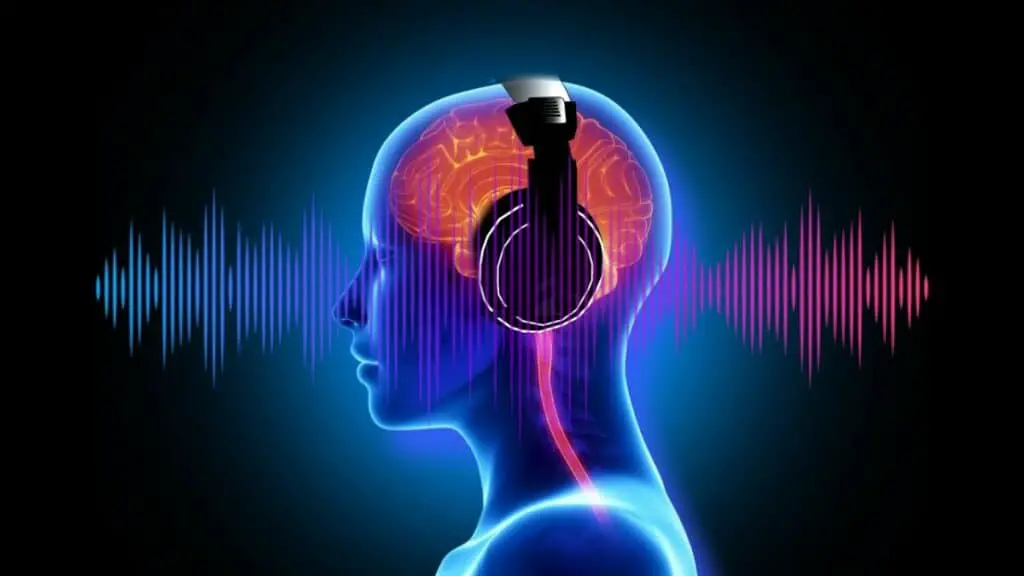
Binaural beats are musical instrumentals, tones, or songs that can sound incredibly pleasant, refreshing, relaxing, or cause agitation, and some have even referred to binaural beats as “digital drugs”.
In technical terms, a binaural beat is the resulting tone (3rd tone) that produced when two different frequencies are played at the same time. Because both sounds are played at once, it forces our brains to process and synchronize the sound into one harmonious frequency.
For example, a sound played at 100 Hertz combined with a different sound pitched to 150 Hertz . Our brains process both sounds simultaneously, and we hear a resulting sound pitched to 50 Hertz.
In 1839 Heinrich Wilhelm Dove is credited with discovering binaural beats. Although Heinrich discovered binaural beats in “”modern times””, the underlying scientific principles of binaural beats date back thousands of years.
According to Dr. Suzanne Jonas, a music-medicine and sound therapy professional for over 25 years, ancient cultures used both rhythmic-drumming and chanting to induce altered states of consciousness which resulted in both healing and spiritual benefits.
For example, chanting “Om” in the ancient Hindu culture.
Today, binaural beats are very much of interest to neurophysiologists investigating how binaural beats influence the brain in subtle and subconscious ways through synchronizing brainwave frequencies.
It is believed by many experts that binaural beats can be used to reduce anxiety, control pain, and much more.
Binaural Beats and Consciousness: How Binaural Beats Work
Binaural beats work best when played in a ‘stereo’ set-up using both left and right speakers or headphones. But they can still be effective when played from a singular source.
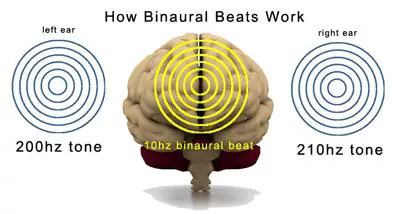
As a recap, a binaural beat is the resulting tone from the difference between two frequencies. If the left ear hears a tone at 200 Hz and the right ear hears a tone at 210 Hz, the resulting binaural beat is 10 Hz.
As described by medical expert Dr. Dan Brennan, once a binaural beat travels through our ear canal the sound converges at a region in our brainstem called the “superior olivary complex”.
According to Web MD, the superior olivary complex is the first part of the brain to process sound and its job is to synchronize various activities through-out the brain.
When a binaural beat is synchronized by the superior olivary complex the two close frequencies harmonize with our brain waves. This harmonization (or synchronization) of brainwaves is called entrainment.
Binaural Beats Work Through Entrainment
Binaural Beats and Entrainment
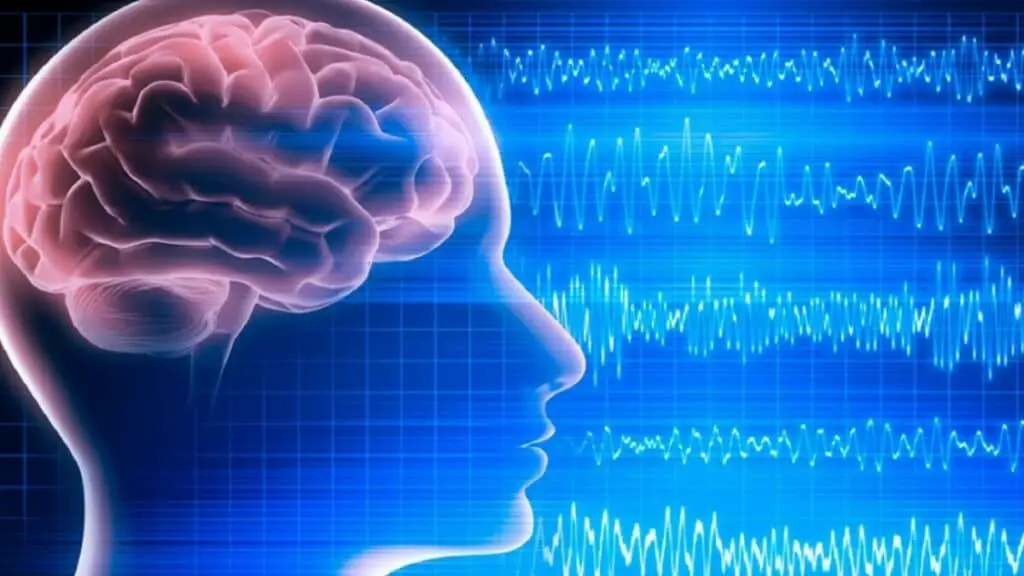
Entrainment is a common brain function referring to the act of brainwaves naturally synchronizing to the rhythm of external stimuli, such as music.
Neurons in your brain use electrical signals to create thoughts, emotions, and behaviors. When neurons synchronize, this creates brain waves.
In a 2015 study published by ScienceDirect, Dr. Michael H. Thaut described entrainment as “a neurological mechanism linking music to retraining brain and behavioral functions”.
5 Types of Brain Waves
According to PsychologyToday, “the effects of the binaural beat will depend on its frequency and the corresponding brain wave”.
Delta State: .5 – 4 Hz.
- Deep sleep
- Healing and pain relief
- Meditation
- Cortisol reduction
- Access to the unconscious mind
Theta State: 4-8 Hz.
- Meditation
- Deep relaxation
- REM sleep
- Increased creativity
- Goal of a float tank (sensory deprivation tank)
Alpha State: 7-14 Hz.
- Relaxed and focused
- Reduced Stress
- Productivity
- Boost in positive thinking
- Increased learning capabilities
- Easily engaged in activities and nature
- Flow state
Beta State: 13-30 Hz.
- Attention & concentration focused
- Analytical thinking and problem solving
- Stimulating energy and action
- High-level cognition
- Potential anxiety
Gamma: 30-100 Hz.
- Increased cognitive ability
- Boost in attention to detail
- Helping in memory recall
- Boost in creativity
Binaural Beats, Meditation, and Consciousness
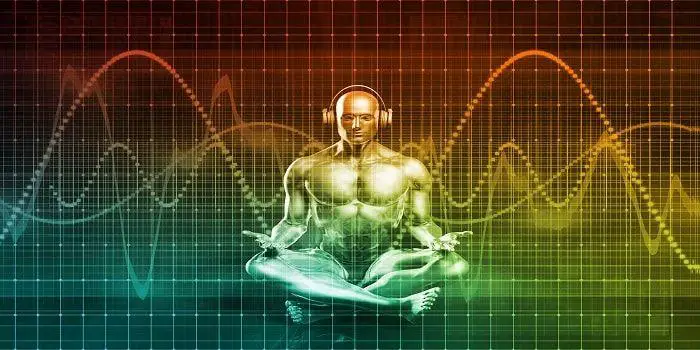
Using sound to aid in meditation is a practice as old as humanity itself. Sounds, dances, chants, and musical instruments have been used in evoke altered states of consciousness in religious ceremonies dating back thousands of years.
Consciousness author and ex-Nasa physicist Tom Campbell says. “Once you are in the 4 Hz theta state that is your goal, stay there for a half hour to two hours. It is a tool, as is meditation itself, for teaching you to eliminate the noise in your mind”
To dive deeper into meditation techniques – Here’s a Beginners Guide to Meditation
7 Proven Health Benefits From Listening To Binaural Beats
For thousands of years, meditation has been used as a tool to help improve mental clarity, emotional balance, and physical well-being.
Binaural beats are believed to have many of the same health benefits as meditation.
1. Decreased Levels of Stress & Anxiety
Can binaural beats naturally reduce feelings of stress and anxiety ?
In a recent 2022 study, released by the Department of Psychology at the University of Toronto, Dr. Adiel Mallik & Dr. Frank Russo lead a team that found sound-based treatments in the ‘’theta frequency’’ were shown to be “effective in reducing cognitive state anxiety”.

A different study lead by Dr. D. Laws found that Alpha frequencies (8 Hz to 13 Hz) are believed to help decrease mental anxiety, promote positive thinking, and encourage relaxation. And a previous study, published by the National Library of Medicine, found that “listening to binaural beats resulted in a significant reduction in the anxiety score reported daily in patients’ diaries.”
In a direct quote from Healthline, “with several human studies to back up the health claims, binaural beats appear to be a potential tool in the fight against anxiety, stress, and negative mental states.”
2. Help With Studying
Do Binaural Beats Help With Studying?
The educators at MindValley teach that “to absorb information, your brain needs to be operating in its ‘learning mode.’ Binaural Beats are a great way to reach this state”.
A 2005 study found evidence that lower beta frequencies (14 Hz to 30 Hz) are linked to increased problem-solving abilities, increased focus and concentration, and improved short and long-term memory.
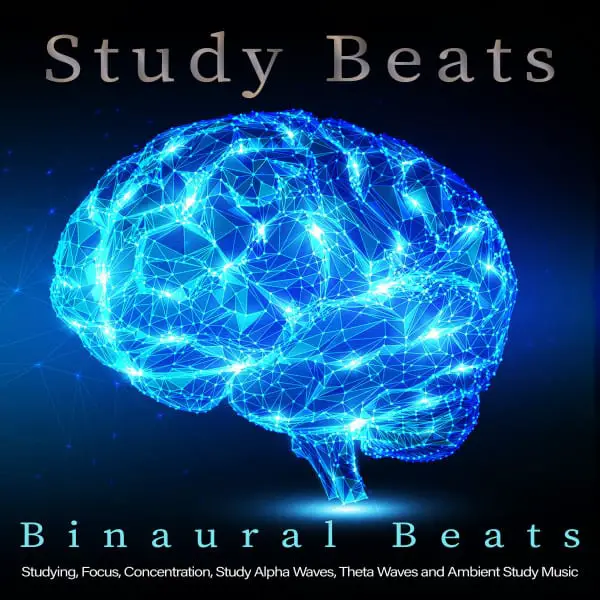
According to Colorado State University, binaural beats can help today’s students and professionals improve the brain’s ability to create memories.
3. Improved Mood And Positivity
In a study lead by Dr. Signy Sheldon, and published by McGill University,
Dr. Sheldon and her team found that by listening to positive sounding or peaceful music, you recall positive memories quicker and more often. As compared to listening to more emotionally scary or sadder sounding music, you recall more negative thoughts and memories.
In a more recent 2022 study, published by the medical journal “Digital Health”, researchers found that binaural beat technology can be used to “improve conditions such as insomnia, frequent night awakenings, anxiety, and general mood”.
22 Examples of Good Vibes: How to Give Off Good Vibes
4. Increased Concentration, Mental Focus, and Overall Productivity
Enhanced Concentration
In 2020, Dr. Bernhard Ross, from the Department of Medical Biophysics University of Toronto, lead a study that concluded “auditory beats stimulation is a promising method of non-invasive brain stimulation for enhancing training and learning”.

Improved Focus
A separate 2017 study, published by the Institute for Psychological Research at Leiden University, found evidence that “high-frequency binaural beats enhance focus”.
Researchers concluded that listening to binaural beats in the Gamma State entrains gamma band activity which is typically associated with greater investment of your attention.
Increased Productivity
In a study published by the Department of Psychiatry at Duke University Medical Center, Dr. JD Lane lead a team of researchers studying the effects of binaural beats.
The study concluded that binaural beats could be used for focused attention, alertness, and “enhancement of human performance”.
5. Increased Creativity
In 2013, the medical journal Frontiers in Human Neuroscience published a study showing that “binaural beats can affect individuals divergent-thinking but not convergent-thinking”.
Convergent thinking focuses on one solution to a problem. While divergent thinking involves more creativity focused problem solving.
6. Reduction and Relief Of Bodily Discomfort And Pain
In 2016 Dr. Donna D. Zampi, published a study demonstrating that binaural beats were able to change pain perception, reducing patients pain by up to 77%.
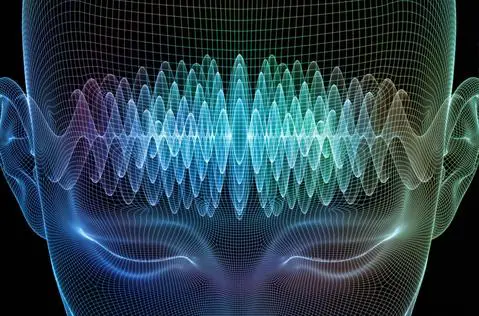
In a fascinating study from 1999, much ahead of its time, researchers found that patients listening to binaural beats whilst undergoing surgery require substantially less fentanyl for pain when compared to patients who are not listening to binaural beats.
7. Improved Sleeping
An interesting study published by the medical journal “Frontiers in Human Neuroscience” found that A 3-Hz binaural beat can be used to modulate neural activity by enhancing delta activity to modulate sleep and reduce “sleep disturbance” and “sleep fragmentation”.
According to findings by the American Academy of Neurology “brainwave entertainment through external sensory stimulus is very beneficial to treat insomnia”
This is backed up by research showing binaural beats with a delta frequency of between 1 Hz and 4 Hz are linked with “deeper sleep and increased relaxation”.
Are Binaural Beats Safe ?
Although there are not a ton of large scale studies on binaural beats, experts agree that the risk of side effects is quite low unless you have an underlying medical condition or are prone to seizures.
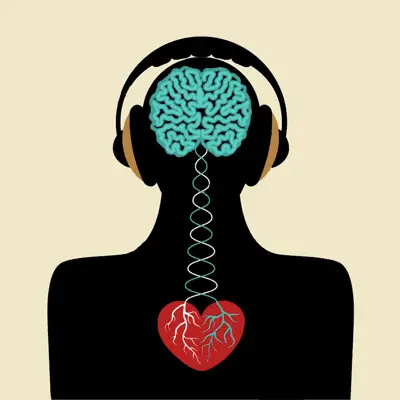
Final Thoughts: Binaural Beats And Consciousness
I personally use binaural beats on a semi-daily basis to help boost productivity and concentration while I work. It works, I’m focused, productive, and calm as well as mindful. In other words, my consciousness is elevated and engaged.
Based on the study’s to date it seems evident that binaural beats can improve your cognitive ability making it easier and more efficient for your brain to operate in a few different ways.
For example listening to binaural beats at a frequency of between 14 Hz to 30 Hz makes you more receptive to learning, understanding, processing, and retaining information while you study.
Listening to certain frequencies can help decrease stress & anxiety levels while also improving focus, concentration, and mental clarity.
However, what works for some people might not work for everybody.
Loved what you read?
Hit that share button and let the world in on the secret – we’d be thrilled!
Got thoughts? We’re all ears for your feedback, corrections, or a good old chat. Don’t be shy; drop us a line.
And hey, don’t miss out on our curated list of must-reads in the recommended books section.
Big thanks for diving in with us today!



